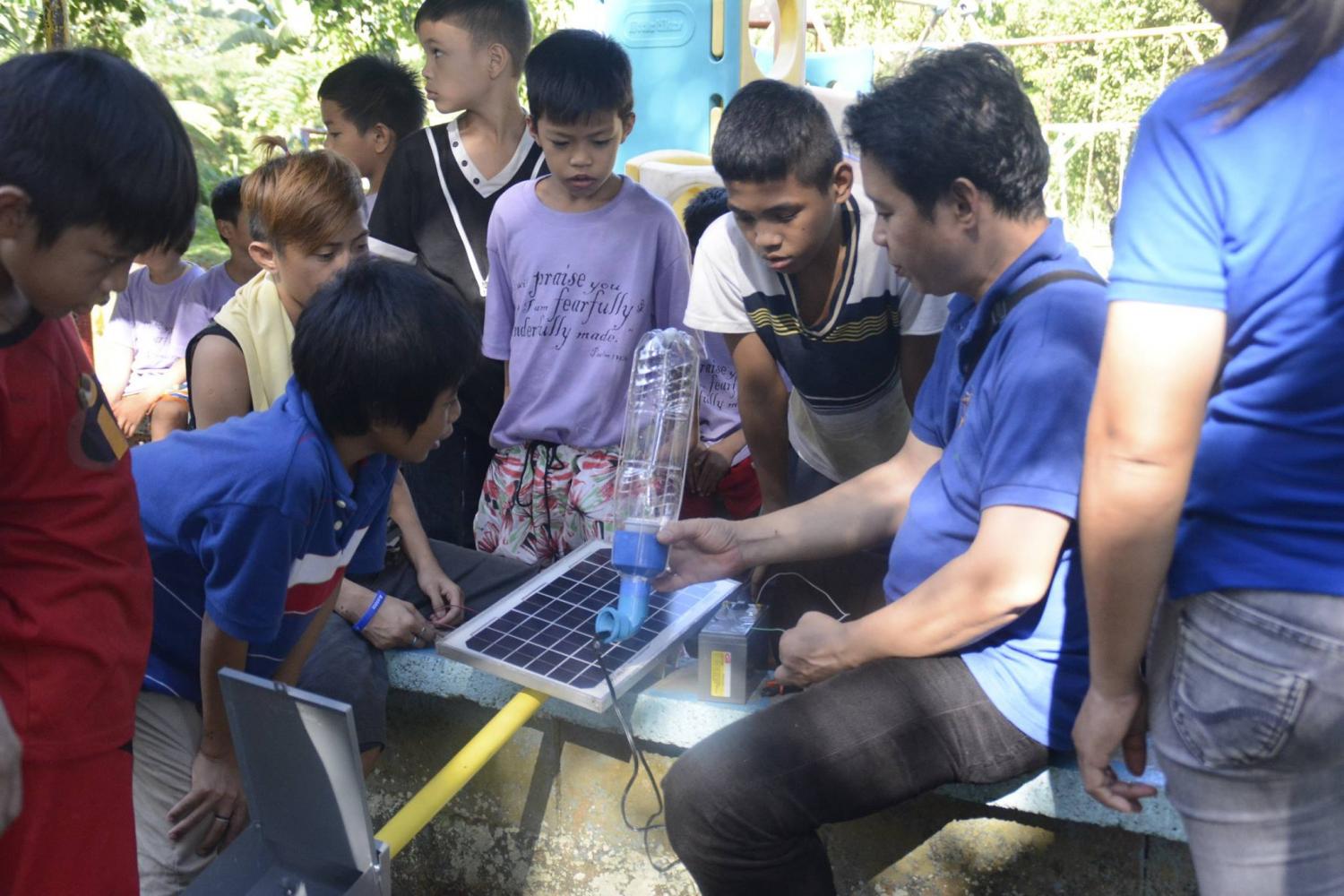
Of all the social enterprises that have helped expand energy access to the poor, Liter of Light is one of the most inspirational stories.
Based in Manila, Philippines, the NGO takes a different approach to clean energy and sustainable development than what is often prescribed in the Western world. Forget "clean technology." The premise of Liter of Light is to use materials that are plentiful and and only require basic trade skills to create lighting that can deploy rapidly in the developing world.
The organization’s first project was simple: Fill two-liter bottles with a mixture of water and bleach, install them correctly in homes, and the result is the equivalent of a 55-watt bulb that emits enough light to fill a room and allow a student to study.
First installed in communities across the Philippines in 2011 (28,000 homes in Manila alone), the concept took off across the world. Similar programs launched in India, Southeast Asia and Latin America. Now this social enterprise has moved beyond the bottles and launched programs that include solar-powered street lights. For Liter of Light, its expansion is less about the technology and more about training people who can turn around and train even more people on how to build and assemble these lights.
Despite its success, Liter of Light sought additional funding so that it could scale the deployment of its ideas worldwide. Last year the organization found success as it was named one of the 2015 Zayed Future Energy Prize (ZFEP) award winners. To learn more about the prize’s impact on Liter of Light, I spoke to its director, Ami Valdemoro.
“Being a winner of this prize has enabled us to have access to other entities who may not have heard of our mission,” Ms. Valdemoro said during our interview earlier this week during Abu Dhabi Sustainability Week. “This exposure gave us even more credibility than we had before.”
More funds meant more training and more solar lights, which of course have helped Liter of Light’s mission become even more widely known. The boost its ZFEP award offered was a catalyst in the organization’s installation of over 100,000 street lights last year, Ms. Valdemoro said. “And we estimate that success led to the empowerment of half a million people,” she continued.
The NGO's bottle lights, and now these relatively low-tech street lights, rely on training. As with the water bottle lights, these new solar lights can be built quickly, with just a few components that can be found just about anywhere. Micro solar panels, a simple circuit and materials for poles (such as bamboo) are all that are needed. The result is safer walkways at night, and of course for women, peace of mind as they walk from work to home.
As Liter of Light trains more individuals, they in turn return the favor. And even better, as Ms. Valdemoro explained, many of them start businesses from which they sell these components, which in turn offers opportunities to live a more comfortably and gain a new role as community leader.
For Ms. Valdemoro, last year’s ZFEP win will inspire even more ideas. The organization is exploring ways to build cost-effective, solar-powered mosquito catchers, solar cell phone charging stations, and even Internet access-points in rural communities that also can be powered by the sun. Liter of Light also plans to ramp up its social mission: Its lights are now illuminating the Dollo Ado refugee camp in Ethiopia, and it's now talking with other international organizations to pursue its work in other refugee camps worldwide as well.
Image credit: Liter of Light
Disclosure: Leon Kaye’s Abu Dhabi Sustainability Week expenses were provided by Masdar

Leon Kaye has written for 3p since 2010 and become executive editor in 2018. His previous work includes writing for the Guardian as well as other online and print publications. In addition, he's worked in sales executive roles within technology and financial research companies, as well as for a public relations firm, for which he consulted with one of the globe’s leading sustainability initiatives. Currently living in Central California, he’s traveled to 70-plus countries and has lived and worked in South Korea, the United Arab Emirates and Uruguay.
Leon’s an alum of Fresno State, the University of Maryland, Baltimore County and the University of Southern California's Marshall Business School. He enjoys traveling abroad as well as exploring California’s Central Coast and the Sierra Nevadas.














